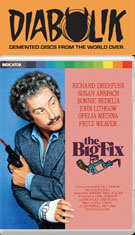



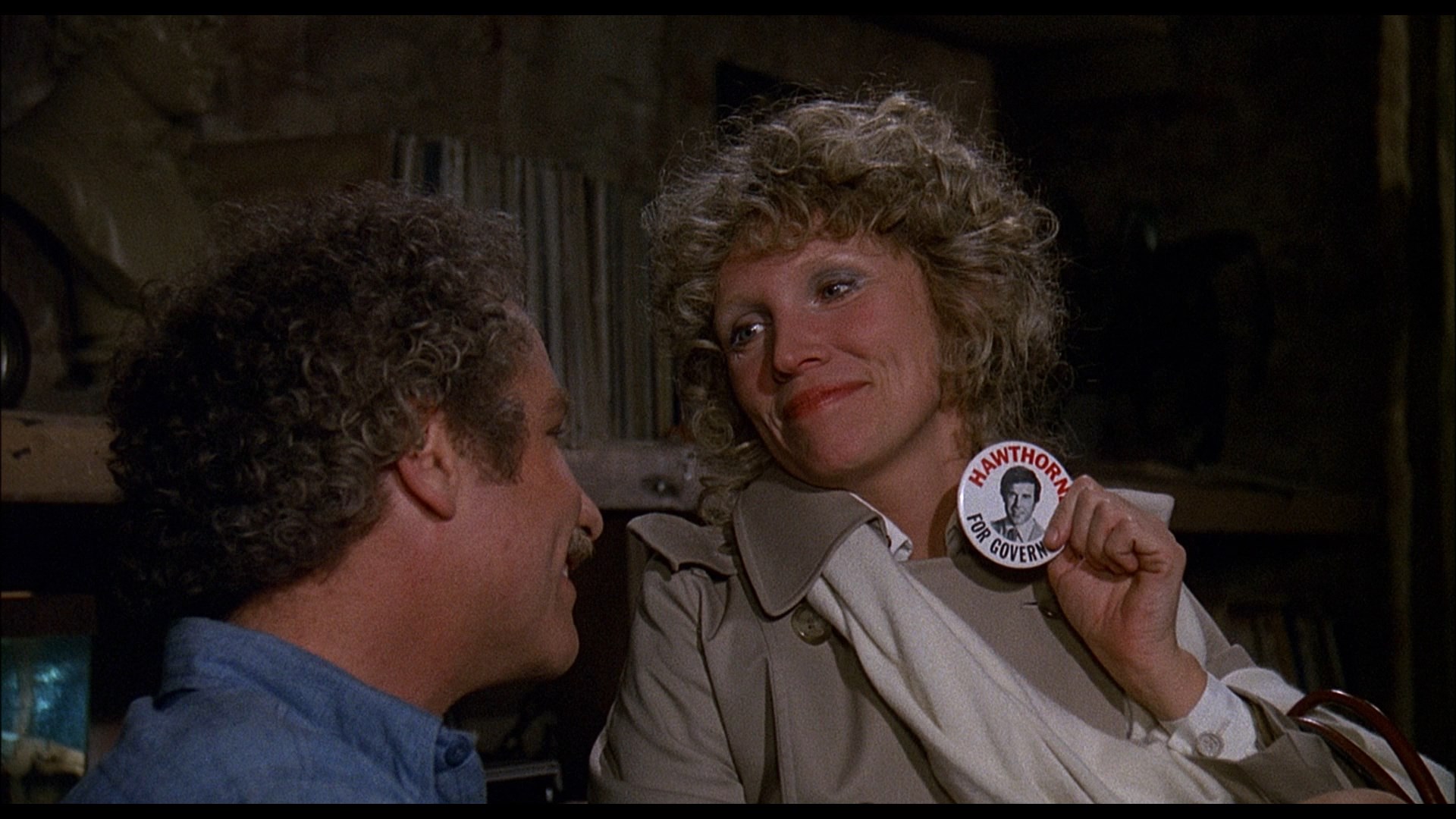 off of winning his Oscar for The Goodbye
off of winning his Oscar for The Goodbye 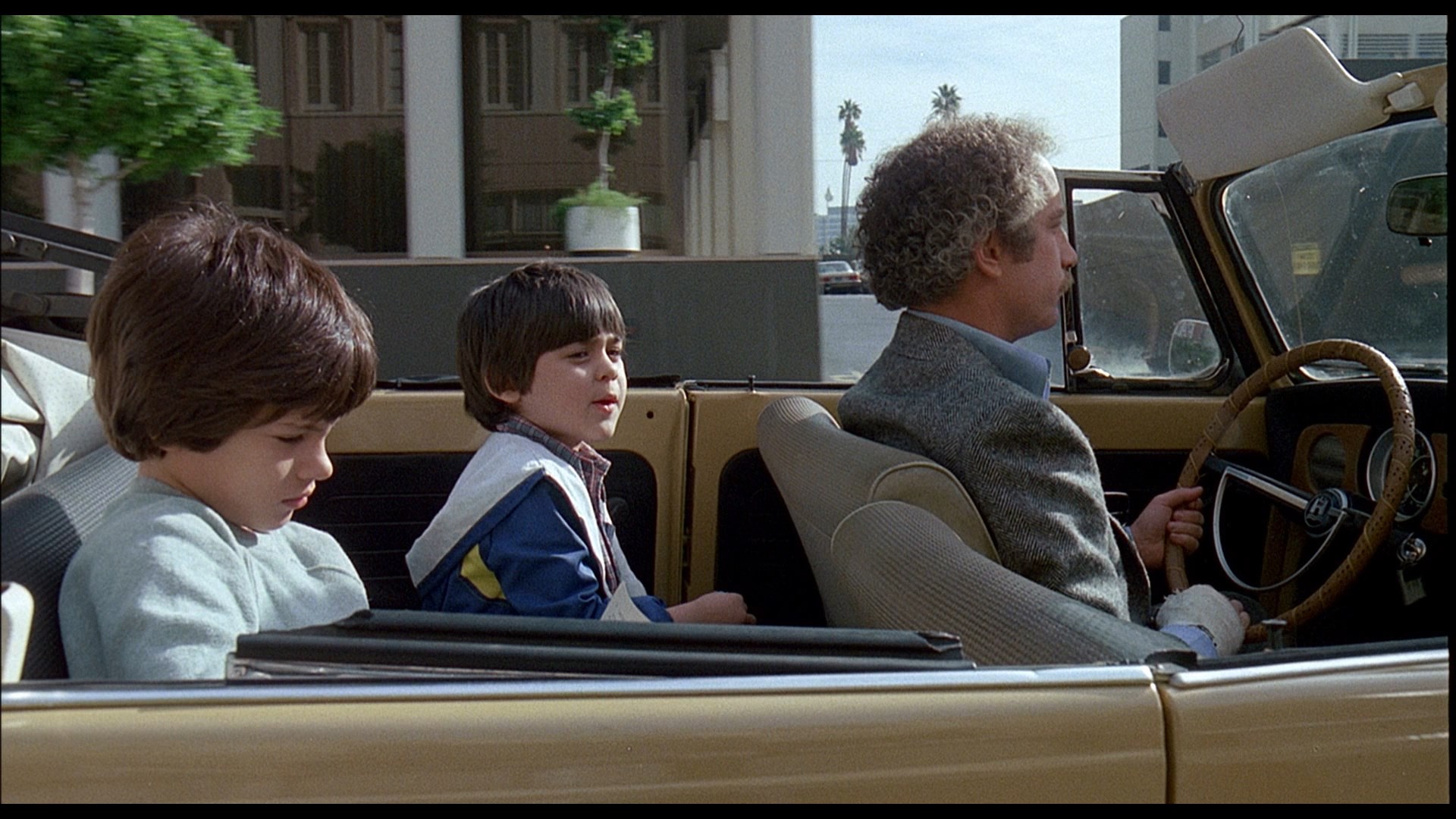 Girl and starring in Close Encounters of the Third Kind, Richard Dreyfuss veered in an unexpected direction by starring in 1978's The Big Fix, a goofy, PG-rated riff on hardboiled crime stories that slots in nicely with other films of the decade like The Late Show, The Long Goodbye, and Night Moves. Novelist Roger L. Simon adapted his own 1973 novel, the first in a series of four mysteries featuring pot-smoking Echo Park detective Moses Wine, bringing with it a vaguely burned-out sensibility that was lingering after the demise of the '60s counterculture.
Girl and starring in Close Encounters of the Third Kind, Richard Dreyfuss veered in an unexpected direction by starring in 1978's The Big Fix, a goofy, PG-rated riff on hardboiled crime stories that slots in nicely with other films of the decade like The Late Show, The Long Goodbye, and Night Moves. Novelist Roger L. Simon adapted his own 1973 novel, the first in a series of four mysteries featuring pot-smoking Echo Park detective Moses Wine, bringing with it a vaguely burned-out sensibility that was lingering after the demise of the '60s counterculture. 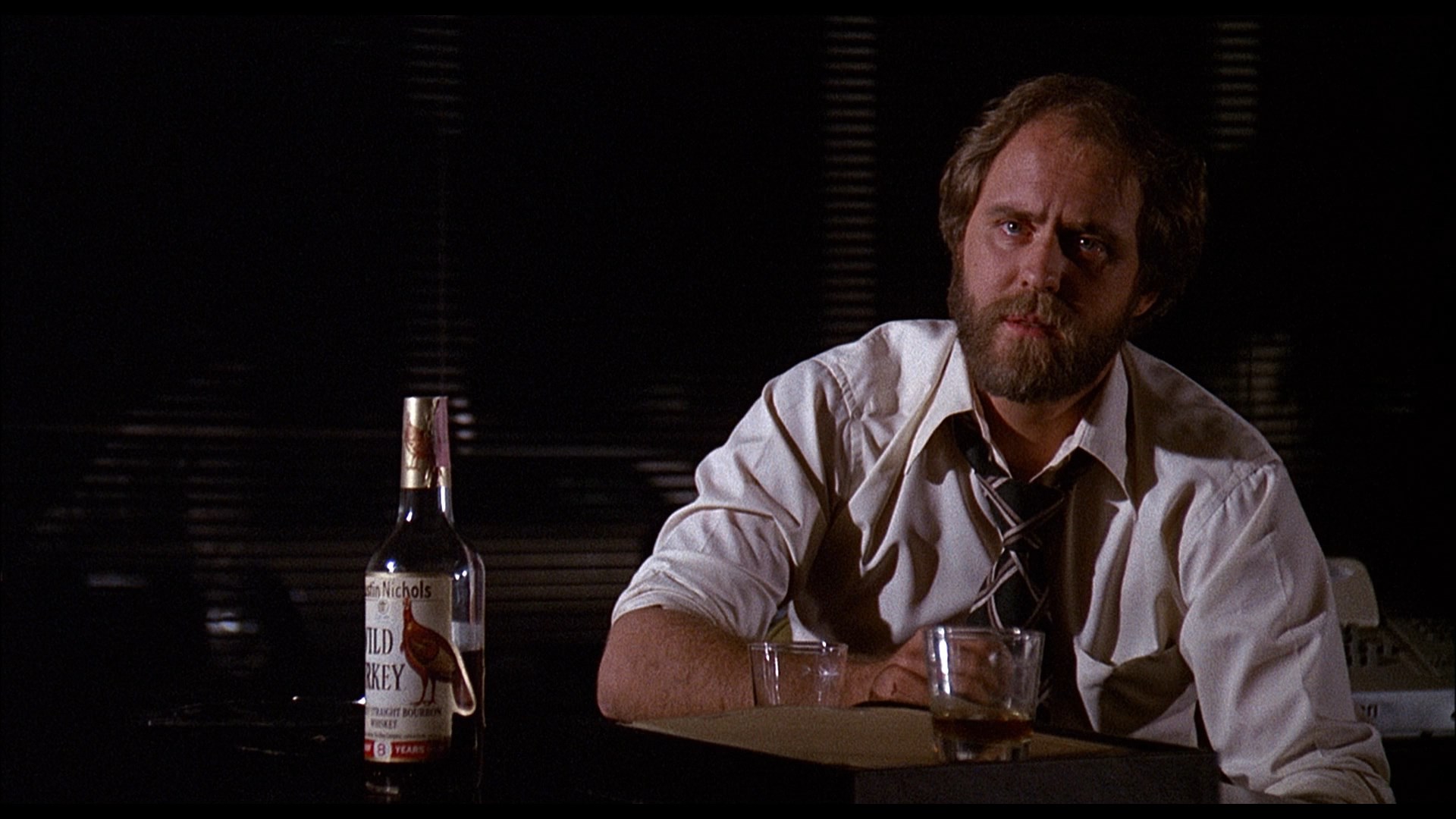 secrets.
secrets. of the '70s is a masterstroke that pays off here very well, and it's hard to think of too many other actors who could have pulled it off as well including some amusing bits toting his kids around town. This would actually make an interesting centerpiece in between Blue Sunshine and The Big Chill with its look at the willful domestication of youthful fervor, with Cutter's Way as a possible chaser, too. Of course, now it's also a prime opportunity to enjoy a ton of character actors in fine form including Lithgow (sporting a big beard), a very colorful Abraham, Fritz Weaver, and the always great Bonnie Bedelia as Wine's ex. Another recent Oscar honoree, Rocky composer Bill Conti, who provides an entertaining score that helps smooth over the sometimes rough transitions between quirky comedy and darker thriller elements. The Universal release would mark the second film for director Jeremy Paul Kagan (who's now dropped the "Paul" on his current credits) following a pretty solid dramedy the previous year for the studio, Heroes; this would be his last film of the decade, followed eventually by another Jewish-themed film, 1983's The Chosen. (After the financial debacle of The Sting II, he jumped over to Disney for the solid The Journey of Natty Gann.) As with his other work, he
of the '70s is a masterstroke that pays off here very well, and it's hard to think of too many other actors who could have pulled it off as well including some amusing bits toting his kids around town. This would actually make an interesting centerpiece in between Blue Sunshine and The Big Chill with its look at the willful domestication of youthful fervor, with Cutter's Way as a possible chaser, too. Of course, now it's also a prime opportunity to enjoy a ton of character actors in fine form including Lithgow (sporting a big beard), a very colorful Abraham, Fritz Weaver, and the always great Bonnie Bedelia as Wine's ex. Another recent Oscar honoree, Rocky composer Bill Conti, who provides an entertaining score that helps smooth over the sometimes rough transitions between quirky comedy and darker thriller elements. The Universal release would mark the second film for director Jeremy Paul Kagan (who's now dropped the "Paul" on his current credits) following a pretty solid dramedy the previous year for the studio, Heroes; this would be his last film of the decade, followed eventually by another Jewish-themed film, 1983's The Chosen. (After the financial debacle of The Sting II, he jumped over to Disney for the solid The Journey of Natty Gann.) As with his other work, he  shows a particularly strong knack for creating a unique vibe, digging into the sociological aspects of his
shows a particularly strong knack for creating a unique vibe, digging into the sociological aspects of his  characters with the plot itself mostly serving as an excuse to spend time with these people and see what makes them tick.
characters with the plot itself mostly serving as an excuse to spend time with these people and see what makes them tick.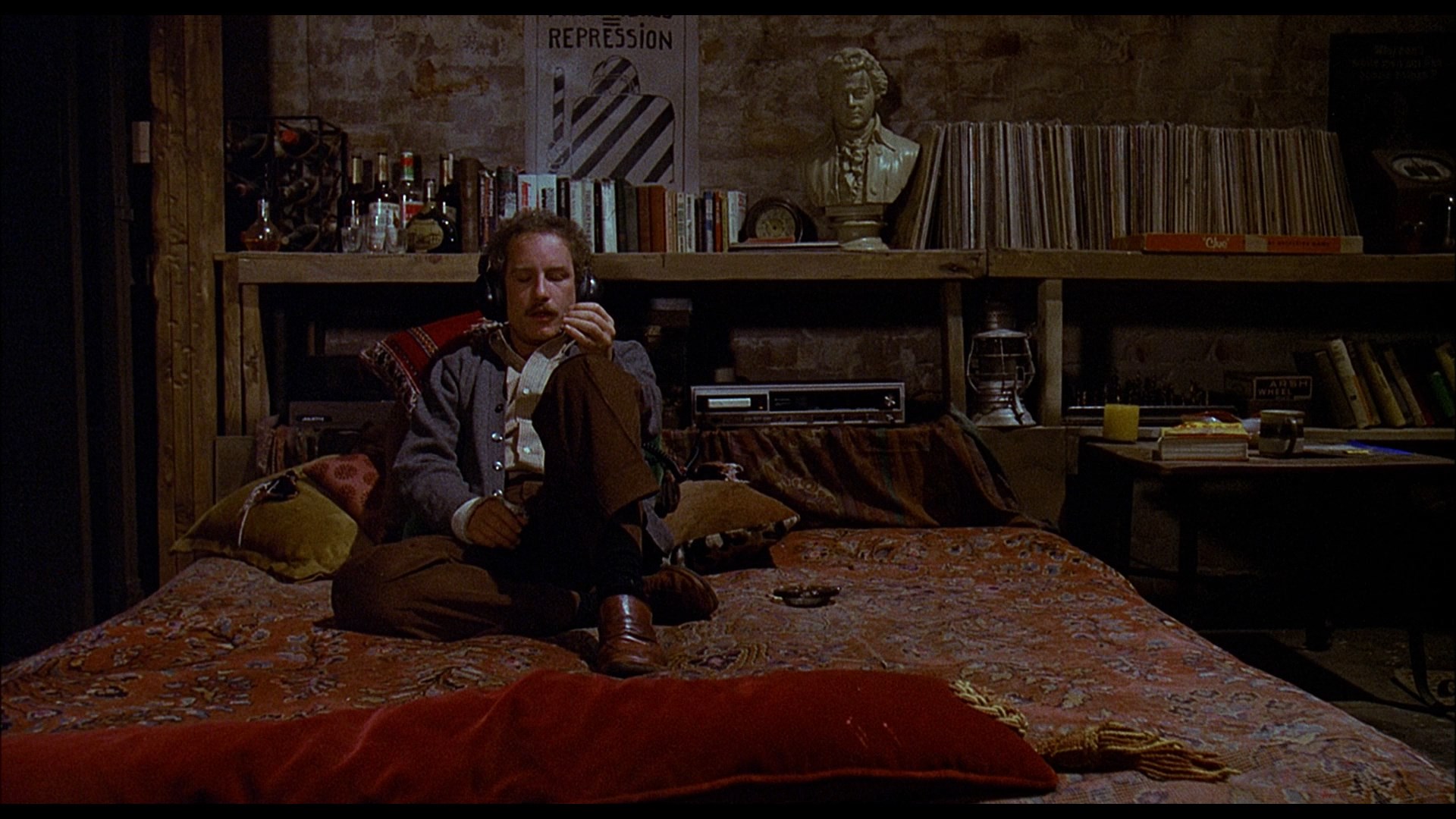 costume designer Edith Head (this was one of her last films),
costume designer Edith Head (this was one of her last films),  an '86 interview with Kagan by Michel Sineux, and three sample critical reactions. The transfer here comes from the same scan and looks quite similar, albeit a notch darker and richer-looking in motion with all of that textured original film grain left intact throughout. The LPCM English 2.0 mono track sounds excellent throughout, and Indicator's commitment to providing improved and more accurate English SDH subtitles is once again to be applauded. A new commentary with Little White Lies editor David Jenkins is mostly analytical as he parses out the film's manipulation of mystery genre tropes, chats about the actors' backgrounds, and occasionally calls out aspects he feels don't quite hit the mark (such as Kagan's handling of action sequences). Nice little shout out comparison to Something Wild, too. It's a solid track, though there are many long silent gaps scattered throughout that might require a fast-forward button. In "The Big Self" (22m36s), Kagan first appears being interviewed by a Muppet version of himself(!) before launching into a lively account of his career starting off with film school, even though he didn't initially plan to actually become a filmmaker. Then you get "The Crime in Mind" (7m41s) with Simon explaining how he got into writing mystery fiction after reading plenty of hardboiled novels and coming up with a modern post-'60s character twist. Also included are two archival TV interviews with Dreyfuss (5m16s) explaining how and why he made the film (shot just before his Oscar win) and Kagan, Simon, and producer Carl Borack (6m49s) committing violent fashion crimes while chatting about working with friends and seeing the final result make it to the screen. Finally the disc rounds out with the open matte theatrical trailer, a TV spot, 96s of radio spots, and two separate galleries for promotional material and behind the scenes shots and storyboards.
an '86 interview with Kagan by Michel Sineux, and three sample critical reactions. The transfer here comes from the same scan and looks quite similar, albeit a notch darker and richer-looking in motion with all of that textured original film grain left intact throughout. The LPCM English 2.0 mono track sounds excellent throughout, and Indicator's commitment to providing improved and more accurate English SDH subtitles is once again to be applauded. A new commentary with Little White Lies editor David Jenkins is mostly analytical as he parses out the film's manipulation of mystery genre tropes, chats about the actors' backgrounds, and occasionally calls out aspects he feels don't quite hit the mark (such as Kagan's handling of action sequences). Nice little shout out comparison to Something Wild, too. It's a solid track, though there are many long silent gaps scattered throughout that might require a fast-forward button. In "The Big Self" (22m36s), Kagan first appears being interviewed by a Muppet version of himself(!) before launching into a lively account of his career starting off with film school, even though he didn't initially plan to actually become a filmmaker. Then you get "The Crime in Mind" (7m41s) with Simon explaining how he got into writing mystery fiction after reading plenty of hardboiled novels and coming up with a modern post-'60s character twist. Also included are two archival TV interviews with Dreyfuss (5m16s) explaining how and why he made the film (shot just before his Oscar win) and Kagan, Simon, and producer Carl Borack (6m49s) committing violent fashion crimes while chatting about working with friends and seeing the final result make it to the screen. Finally the disc rounds out with the open matte theatrical trailer, a TV spot, 96s of radio spots, and two separate galleries for promotional material and behind the scenes shots and storyboards. ![]()